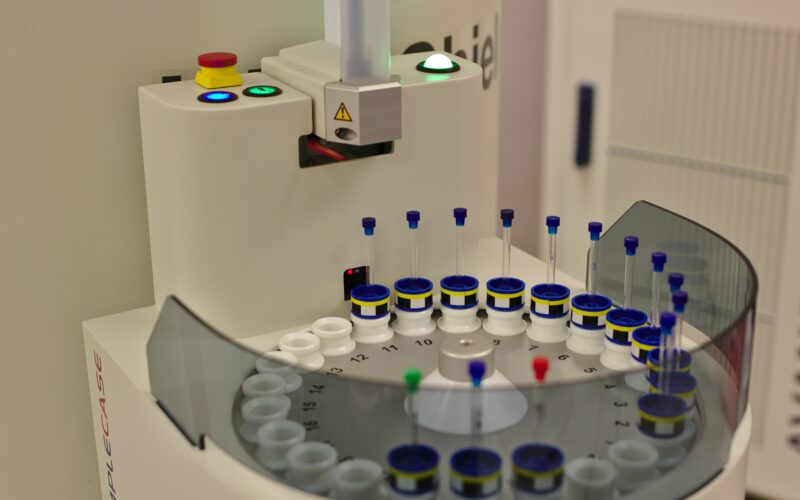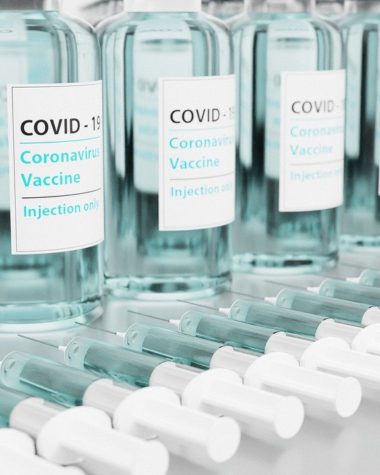bioAffinity Technologies, Inc. (NASDAQ: BIAF) is a biotechnology company committed to transforming the diagnosis and treatment of cancer and other lung diseases through noninvasive, innovative approaches. Founded with the mission of addressing one of the world’s most urgent healthcare challenges—detecting lung cancer at its earliest and most treatable stages—the company has dedicated years of research and development to refining its flagship diagnostic product, CyPath Lung. Headquartered in San Antonio, Texas, bioAffinity brings together expertise in cell biology, flow cytometry, artificial intelligence, and clinical diagnostics to create solutions that can both improve patient outcomes and reduce healthcare costs.
The company’s roots trace back to groundbreaking research in how cancer cells differ metabolically from healthy cells. This led to the development of its proprietary porphyrin-based technology, which leverages the tendency of cancer and cancer-related cells to preferentially take up specific fluorescent compounds. Combined with advanced flow cytometry and AI-driven data analysis, this platform allows for highly sensitive and specific identification of malignant cells in sputum samples. The result is CyPath Lung, a noninvasive test that has already demonstrated 92% sensitivity, 87% specificity, and 88% accuracy in clinical studies for patients at high risk of lung cancer with small nodules.
bioAffinity’s commercialization strategy is equally forward-looking. CyPath Lung is currently available as a Laboratory Developed Test (LDT) through Precision Pathology Laboratory Services, a wholly owned subsidiary of the company. This vertical integration allows bioAffinity to not only develop the technology but also control its delivery to physicians and patients, ensuring consistent quality and reliability. The company has also emphasized close collaboration with pulmonologists and oncologists, positioning its test as a vital complement to imaging tools like low-dose CT scans, which often yield indeterminate results. By providing actionable insights, CyPath Lung can help clinicians decide when to pursue aggressive treatment and when to avoid unnecessary invasive procedures.
While the company’s immediate focus is on lung cancer, its long-term vision extends beyond a single indication. bioAffinity’s platform technology has the potential to be applied to other respiratory conditions such as chronic obstructive pulmonary disease (COPD) and asthma, and potentially even broader applications in cancer diagnostics. By advancing a model that integrates cellular biology, AI analysis, and noninvasive sampling, the company aims to build a portfolio of diagnostics and therapies that could redefine standards of care in multiple disease areas.
In addition to its diagnostic focus, bioAffinity has also explored therapeutic pathways, leveraging its porphyrin-based technology for possible broad-spectrum cancer treatments. This dual approach underscores the company’s ambition to be more than a diagnostics firm, positioning itself as a biotech innovator capable of addressing multiple facets of cancer care. With its growing clinical validation, expanding physician adoption, and vision for pipeline diversification, bioAffinity Technologies has established itself as a promising force in the biotechnology landscape. Its commitment to early detection, patient-centered solutions, and continuous innovation makes it a compelling company to watch as it advances toward broader adoption and commercialization of its pioneering technology.
How CyPath Lung Works and Why It Matters
CyPath Lung is a first-of-its-kind test that uses advanced flow cytometry and artificial intelligence to analyze sputum samples for cellular characteristics that signal cancer. The test incorporates a fluorescent porphyrin that is preferentially taken up by cancer and cancer-related cells, allowing the technology to differentiate between malignant and benign findings. In clinical studies, CyPath Lung has demonstrated 92% sensitivity, 87% specificity, and 88% accuracy in patients at high risk for lung cancer with nodules smaller than 20 millimeters.
The importance of this innovation cannot be overstated. Lung cancer is the leading cause of cancer-related deaths worldwide, largely because it is often diagnosed at advanced stages. Low-dose CT screening helps but frequently identifies indeterminate nodules, leading to invasive biopsies that carry risks, costs, and stress for patients. CyPath Lung provides physicians with an additional layer of precision, helping them decide when to intervene aggressively and when to monitor, thereby improving patient outcomes and streamlining care.

CHECK THIS OUT: Saudi Arabia Wants CEL-SCI (CVM)’s Multikine Now! and Aligos Therapeutics (ALGS) Doubles Cash to $122.9M.
Patient Case Studies Prove Real-World Value
The most recent case studies underline the transformative potential of CyPath Lung. In one patient nicknamed “Samuel,” a positive CyPath Lung result led to a biopsy confirming Stage 1A lung cancer, enabling timely treatment with curative intent. In another case referred to as “David,” a negative CyPath Lung result prevented an unnecessary biopsy and instead guided physicians toward careful monitoring with follow-up CT scans. In the third case, “Lisa,” a positive result provided the confidence to initiate radiation therapy in a patient with advanced COPD and a history of lung cancer, where biopsy risks were deemed too high. These outcomes illustrate the dual benefit of CyPath Lung: driving early detection when it matters most and avoiding invasive procedures when they are not warranted.
Market Opportunity and Commercial Potential
The addressable market for CyPath Lung is enormous. In the U.S. alone, millions of high-risk individuals undergo CT scans each year, and a significant portion of those scans reveal pulmonary nodules that are indeterminate. Adding CyPath Lung to the diagnostic pathway could help refine these findings, reduce the number of invasive biopsies, and identify cancers earlier, saving lives and healthcare costs.
The company is already commercializing CyPath Lung as a Laboratory Developed Test (LDT) through its subsidiary Precision Pathology Laboratory Services, giving it a revenue-ready platform to build upon. As adoption increases and reimbursement from payers is secured, the revenue potential could scale significantly. For a company of bioAffinity’s size and market capitalization, even modest adoption could translate into meaningful growth.
Competitive Position and Technological Edge
Unlike many diagnostic companies focused on blood-based biomarkers, bioAffinity is leveraging a sputum-based test that directly reflects cellular changes in the lungs. This unique approach provides a competitive advantage, as it may capture early changes that imaging or blood-based tests miss. With AI-driven automated analysis and proprietary fluorescent markers, CyPath Lung combines cutting-edge biology with advanced computational methods, giving it a strong moat against competitors.
The increasing number of case studies, particularly those highlighting early-stage cancer detection, also strengthens physician trust and differentiates CyPath Lung from other solutions. As more pulmonologists and oncologists integrate the test into their diagnostic workflow, network effects could accelerate adoption.
Recent Momentum and Investor Reaction
Investor sentiment has already started to shift in response to the new case study data. Shares of bioAffinity surged more than 50% in premarket trading following the announcement, reflecting optimism that CyPath Lung is transitioning from a promising concept into a clinically validated product. This momentum underscores the market’s appetite for breakthroughs in cancer diagnostics and highlights bioAffinity’s potential to capture investor and clinical attention simultaneously.
Long-Term Growth Drivers Beyond Lung Cancer
While lung cancer is the current focus, bioAffinity’s platform technology holds broader potential. The company has highlighted opportunities to expand into other lung diseases such as chronic obstructive pulmonary disease (COPD) and asthma, where cellular changes in sputum can also provide diagnostic insight. If the company successfully proves its model in lung cancer, it could expand into adjacent indications, multiplying its market opportunity. This long-term vision, combined with near-term validation from CyPath Lung, offers a strong upside case for investors.
Bullish Case for bioAffinity Technologies
The bullish thesis for bioAffinity Technologies rests on several pillars: the urgent unmet need for better lung cancer diagnostics, CyPath Lung’s strong clinical performance with 92% sensitivity and 87% specificity, its demonstrated real-world value in life-saving and cost-saving case studies, and the massive commercial opportunity in a multibillion-dollar diagnostic market. With ongoing physician adoption, expanding case data, and growing investor interest, bioAffinity has the potential to transform its innovative science into a profitable, life-changing business.
For investors with an appetite for early-stage biotech opportunities, bioAffinity represents a high-risk, high-reward play that could deliver substantial returns as CyPath Lung moves closer to becoming a standard-of-care complement to CT imaging in lung cancer screening and diagnosis.
READ ALSO: Exact Sciences (EXAS) Just Made Cancer Detection 100x Easier! and Soleno Therapeutics (SLNO): The Biotech Company That Could Make You Rich.








